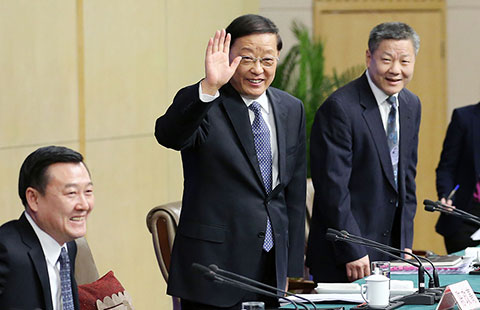Decoding political logic behind China's economic miracle
(Xinhua) Updated: 2016-03-16 11:20The 12 previous five-year plans were important components of political economics with Chinese characteristics. Grassroots wisdom in the new five-year plan has been pooled from nearly 3,000 NPC deputies and over 2,000 national legislators.
This year, China will begin a new round of elections for people's congresses at county and township level. Over 900 million people will directly elect more than 2.5 million lawmakers: the new representatives of efficiency and democracy.
Compatible trinity of growth, reform & stability
Although Moody's expressed doubts in a report last week as to whether China could achieve the desired rate of growth, institute reform and maintain stability at the same time, China's political logic speaks for itself. These three objectives have always been central to CPC governance.
"China's advantages in institutions and governance patterns should enable enormous, long-term economic potential be continuously translated into stability dividends," said Cai Jiming, a political economy professor with Tsinghua University.
CPC leadership, public support for reform, consistent reform and social stability have all been considered China's "advantages" at some time or another.
"China will not repeat the mistakes of other countries," Cai said.
How long can China continue its political logic of advancing comprehensive reform and opening up?
Liu Zhexin, professor with the China Executive Leadership Academy based in Shanghai, believes the growth China seeks is stable, balanced and fair, with its achievements shared by all.
"Development and stability will remain in a virtuous circle for a fairly long period," Liu said.
- Largest blue diamond to appear at auction
- China to play leading role for development of Swiss SMEs
- China highlights online fake fight on consumer rights day
- Bank of China upgrades Africa service with new office in Casablanca
- Lawmakers approve China's five-year plan against economic headwinds
- Chinese companies embrace digitalization at IT exhibition
- Agricultural e-commerce bridges China's urban-rural gap
- Alibaba to train 1 million rural e-commerce gurus
















